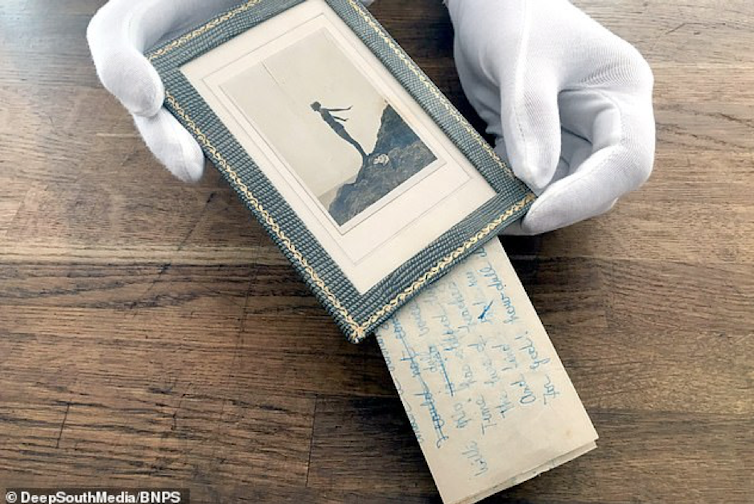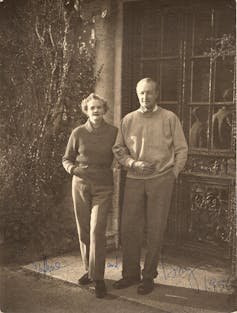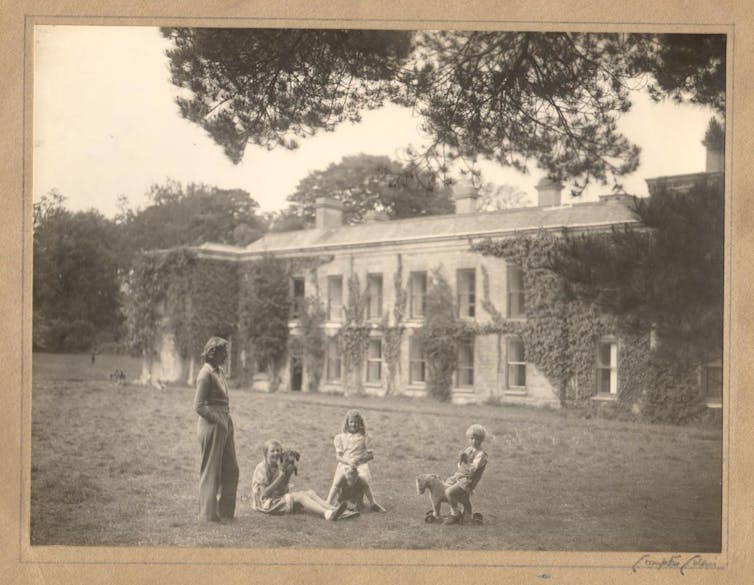Newly discovered Du Maurier poems shed light on a talented writer honing her craft
Laura Varnam, Lecturer in English Literature, University of Oxford
This article is republished from The Conversation under a Creative Commons license. Read the original article.
Oxford is a subscribing member of The Conversation. Find out how you can write for The Conversation.
![]()
Newly discovered Du Maurier poems shed light on a talented writer honing her craft

Laura Varnam, University of Oxford
Daphne du Maurier remains one of the 20th century’s most popular and enigmatic writers, her life captivating readers as much as her works, as the most recent biography, Manderley Forever by Tatiana de Rosnay, has shown. Her literary reputation is also finally on the rise and, although her most popular novel Rebecca has often overshadowed her wide-ranging achievements as a writer, the celebration of its 80th anniversary last year reinforced Du Maurier’s place in the canon of English Literature as a serious and influential author.
This will be aided by the recent discovery of unknown poems, written early in her writing career, hidden behind a stunning photograph of the young Du Maurier in a bathing costume on the rocks, poised to take flight into the sea that was such an inspiration to her work.
The poems were discovered by auctioneer Roddy Lloyd of Rowley’s auction house, Ely, as he prepared the archive of Du Maurier materials belonging to the late Maureen Baker-Munton for auction on April 27. Baker-Munton was PA to Daphne’s husband, Lt Gen Sir Frederick “Boy” Browning and she became a close and important friend to the Du Maurier Browning family, as expert Ann Willmore explains on the Du Maurier website.

Du Maurier is still primarily known as a novelist – as well as the bestseller Rebecca she is also rightly revered for the great Cornish novels, Jamaica Inn (1936), Frenchman’s Creek (1941) and My Cousin Rachel (1951). But, as I argue in the book I am writing on Du Maurier, she was a far more versatile, wide-ranging, and experimental writer than is currently recognised. Du Maurier wrote plays, short stories and biographies throughout her career but she was also a poet, as her son Kits Browning explained to me when we spoke over the telephone recently.
Read more: Du Maurier's Rebecca at 80: why we will always return to Manderley
Honing her craft
The newly discovered poems were written when Du Maurier was honing her craft as a writer in the late 1920s. At that stage she was primarily writing short stories but, as Browning told me: “My mother wrote poetry throughout her life and career.” Indeed Du Maurier often used poetry as a way of exploring an experience or emotion or testing out a character before then expanding on her ideas in a short story or novel. One of the newly discovered poems focuses on loneliness:
When I was ten, I thought the greatest bliss,
would be to rest all day upon hot sand under a burning sun…
time has slipped by, and finally I’ve known,
The lure of beaches under exotic skies,
and find my dreams to be misguided lies,
For God! How dull it is to rest alone.
Du Maurier’s work is preoccupied by the difference between fantasy and reality - and the dangers of dreaming - and her work repeatedly returns to the tension between the desire for independence and the need for companionship and human contact.
Gender and sexuality
Another poem: Song of the Happy Prostitute, portrays a woman who is frustrated with the way her profession is represented.
Why do they picture me as tired and old…
selling myself with sorrow,
just to gain a few dull pence to shield me from the rain.
What on first sight might seem an unusual, even controversial, topic for the young writer in fact reflects the dominant themes of her early work, as Ann Willmore, of Bookends of Fowey, explained to me recently. Willmore discovered the unpublished Du Maurier short story The Doll in which a young woman, suggestively named Rebecca, protects her personal independence by keeping a sex doll. “The Happy Prostitute poem fits in with Daphne’s interests in gender and sexuality, especially in her early work, and she did seem to want to shock her readers”, Willmore told me.
The poem also, in my view, relates to two early short stories from the same period of Du Maurier’s life in which she created the character of a prostitute called Mazie who boldly claimed that her work enabled her to be independent. “I’m free, I don’t owe anything to no one, I belong to myself”, Mazie declares in the short story Piccadilly. Growing up in the 1920s, when the freedom and autonomy of women was increasingly a topic for public debate, Du Maurier’s choice of subject matter reflects the concerns of her day.

Du Maurier was a very privileged young woman, growing up in the grandeur of Cannon Hall in Hampstead – but her background was theatrical and Bohemian, as the daughter of celebrated actor-manager Sir Gerald du Maurier and stage actress Muriel Beaumont. And, as her son Kits Browning stressed, she was an avid reader and gained much imaginative experience of the world from the books she devoured as a teenager.
As to why the poems were hidden behind the photograph – either by Du Maurier herself or someone else – we are unlikely ever to find out. Browning told the Daily Telegraph that perhaps she did not want her parents to read them. Perhaps the Happy Prostitute found fuller expression in the Mazie short stories.
These newly discovered poems shed important light on Du Maurier’s early work and writing practice. Still often dogged by the incorrect label of “romantic novelist”, these poems highlight the important themes of independence, gender, and sexuality that were to fascinate Du Maurier throughout her career, in both prose and poetry. They show her boldness, spirit, and strength, just like the photograph behind which they were concealed for all these years.
Laura Varnam, Lecturer in English Literature, University of Oxford
This article is republished from The Conversation under a Creative Commons license. Read the original article.





